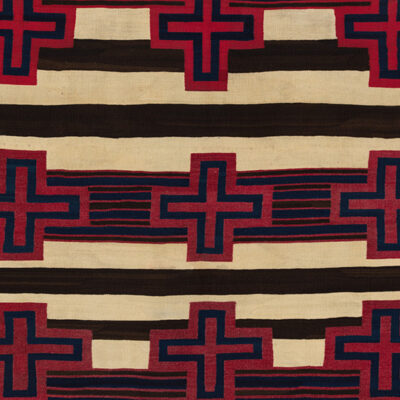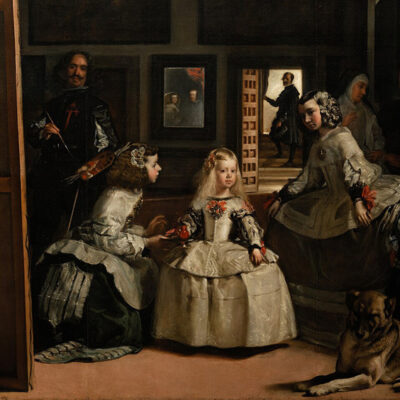2024 grant recipients
NCHA has awarded travel fellowships to attend the 36th CIHA World Congress in Lyon, France, June 23 – 28, 2024 to the following graduate students.
Harleen Kaur Bagga is a PhD candidate in the Department of Art and Art History at Stanford University. Her dissertation, “Possessing Souls/Sizing Bodies: Gaudenzio Ferrari and the Immersive Magic of the Italian Renaissance,” presents a history of immersion by examining the scale of the life-size. She holds two MAs from Syracuse University in Florence and University College London, and a BA from St. Stephen’s College, Delhi. Also interested in cross-cultural encounters between Europe and Asia, she has recently served as a Research Editor for online courses on Indian Art History at the MAP Academy.
Meghaa Parvathy Ballakrishnen is completing her dissertation, “Untitled: Abstraction, India, and Art History’s Time,” at the Department of History of Art at Johns Hopkins University and is currently the Andrew W. Mellon predoctoral fellow at the Center for Advanced Study in the Visual Arts (the Center).
Danelle Bernten is a doctoral student at Florida State University’s Art History Department. Her focus areas are African-American art, Southern and folk art, and Art of the African diaspora. She is the 2024 winner of the FSU Gunther Stamm prize, MLK Book Award, and Helen J. Beard Travel Grant. She is a graduate of Princeton and Louisiana State.
Ash Duhrkoop, PhD candidate at the University of Virginia, specializes in Twentieth-century and African art, with an interest in ecocriticism. Her dissertation examines the history of art and mineral extraction in Lubumbashi, Democratic Republic of the Congo. She holds an MA in Modern Art: Critical and Curatorial Studies from Columbia University and is a Mellon-ACLS Dissertation Innovation Fellow for the 2023 – 24 academic year.
Emily Duvall is a PhD candidate at the University of North Carolina, Chapel Hill, focusing on sixteenth-century French art, advised by Dr. Tania String. Her dissertation examines visual representations of space as expressions of power during the reign of Francis I (1515−1547). In her project, she considers how the spatial construction of the king’s royal imagery exhibited his authority and communicated possession.
Virginia Girard is a PhD candidate in the department of Art History & Archaeology at Columbia University. Her dissertation recovers myths and folklore associated with the environment of late medieval Flanders to consider their influence on the development of the landscape genre. Virginia completed her MA at the Courtauld Institute of Art and her BA at Cornell University.
Dana Hogan has developed research related to her dissertation, “Expanding Worlds: Italian Women Artists and Cross-Cultural Encounters in Early Modernity” through Duke University’s department of Art, Art History & Visual Studies and graduate program in Feminist Studies. Prior to her doctoral studies she earned degrees in Italian Renaissance Art through Syracuse University in Florence, and in Art History and Comparative Literature from Williams College. At Duke, Dana has contributed to several digital humanities initiatives including the Digital Art History & Visual Culture Research Lab and Project Vox, an open-access educational resource on women philosophers.
Vu Horwitz’s research focuses on Central African wooden material culture from the 19th century and earlier. Situating objects within materialist and ecological frameworks, she concentrates upon the ways in which artisanal practices in that context expressed various kinds of interrelations. She is particularly interested in interpreting objects as vital sources for historical knowledge, which has led her to explore both the physical and metaphysical properties of specific materials, as well as the tools and methods of fabrication they require. Her dissertation project draws from and integrates a range of disciplines, including art history, anthropology, dendrology, and ecology, to reveal the entanglements that palm wine drinking vessels from the Kuba cultural region embody.
Tara Kraft-Ainsworth is a doctoral student studying art history at the University of Georgia. Her research explores how Surrealist artists in interwar France, and Europe more broadly, grappled with the quick readability of mass-produced literature and visual culture. She is particularly interested in how regional versions of the detective genre — from the French crime novel to the British murder mystery to American hardboiled fiction — were translated to visual art and why artists saw the detective genre’s formulaic system as an apt conduit to debate modern modes of observation and attention.
Jennifer Laffick is an art history PhD candidate at Southern Methodist University specializing in eighteenth and nineteenth-century French art, particularly its relationship with empire within the Atlantic world. She is also interested in museology, both the history of museums from the 1700s onward and curatorial practice today, and has held positions at a range of institutions including the National Gallery of Art, the Norton Museum of Art, and the Wallace Collection. Laffick is a recipient of a Fulbright research grant and will conduct dissertation research in France at the Université Grenoble Alpes during the 2024 – 25 academic year.
Weronika Malek-Lubawski is a PhD Candidate in Art History at the University of Southern California, working on her dissertation “Between Moscow and Paris: Łódź and the Transnational Avant-Garde Scene.” She spent the 2023 – 24 academic year as a Fulbright Fellow in Poland, where she researched Katarzyna Kobro’s, Władysław Strzemiński’s, and Henryk Berlewi’s careers and international networks. She completed her BFA in Painting and Art history at the School of Art Institute of Chicago, and her MA in Humanities at the University of Chicago.
Bianca Morán (she/her) is a PhD student in the Art History Department at The Graduate Center, CUNY. She specializes in Modern and Contemporary Art of the Americas and is pursuing a certificate in Africana Studies. A former K‑16 educator in Los Angeles, her work is deeply informed by her training in culturally relevant and responsive pedagogy. Her research interests include political theory, critical race theory, foodways, diaspora, the visual and material culture of the Atlantic world, race and colonialism, museum pedagogy, and film. Bianca holds an MA in Curatorial Practices and the Public Sphere from the University of Southern California, an MEd in Education from UCLA, and a BA in Political Science with a minor in Ethnic Studies from UC Berkeley. Bianca is also a single mother raising her daughter, Paloma.
Sun Yang Park is a PhD candidate in the Department of Art History at Binghamton University, State University of New York. Her dissertation focuses on Sinsasilpa, the Korean New Realism Group, and its intricate relationship with modernity. As a researcher and aspiring scholar specializing in modern and contemporary art, her research interests encompass postwar Korean art movements and practices within a global context, political and social perspectives, interdisciplinary studies between modern and contemporary art and literature, contemporary art and materiality, Nam June Paik and multimedia art, and contemporary Korean women artists and art of the diaspora. She has contributed to publications, including journals such as Art History Forum and Art Critique of Taiwan, as well as the edited volume Music, Poetry, and Language: Sound, Sight, and Speech in Comparative and Creative Connection.
April Riddle is a PhD candidate in the Department of History of Art at The Ohio State University. She holds a BA in the History of Art and Visual Culture from the University of California, Santa Cruz and an MA in the Rhetorics of Art, Space, and Culture from Southern Methodist University. Her dissertation explores artist-produced games that take place both on and off screen and the entangled histories of video games and financialization.
Stephanie Strother is a PhD candidate at the University of Chicago. Her dissertation focuses on the Atelier Martine, a Paris-based decorative arts workshop founded in 1911 by leading fashion designer Paul Poiret. Among other projects, she recently co-curated the exhibition Four Chicago Artists: Theodore Halkin, Evelyn Statsinger, Barbara Rossi, and Christina Ramberg at the Art Institute of Chicago.





